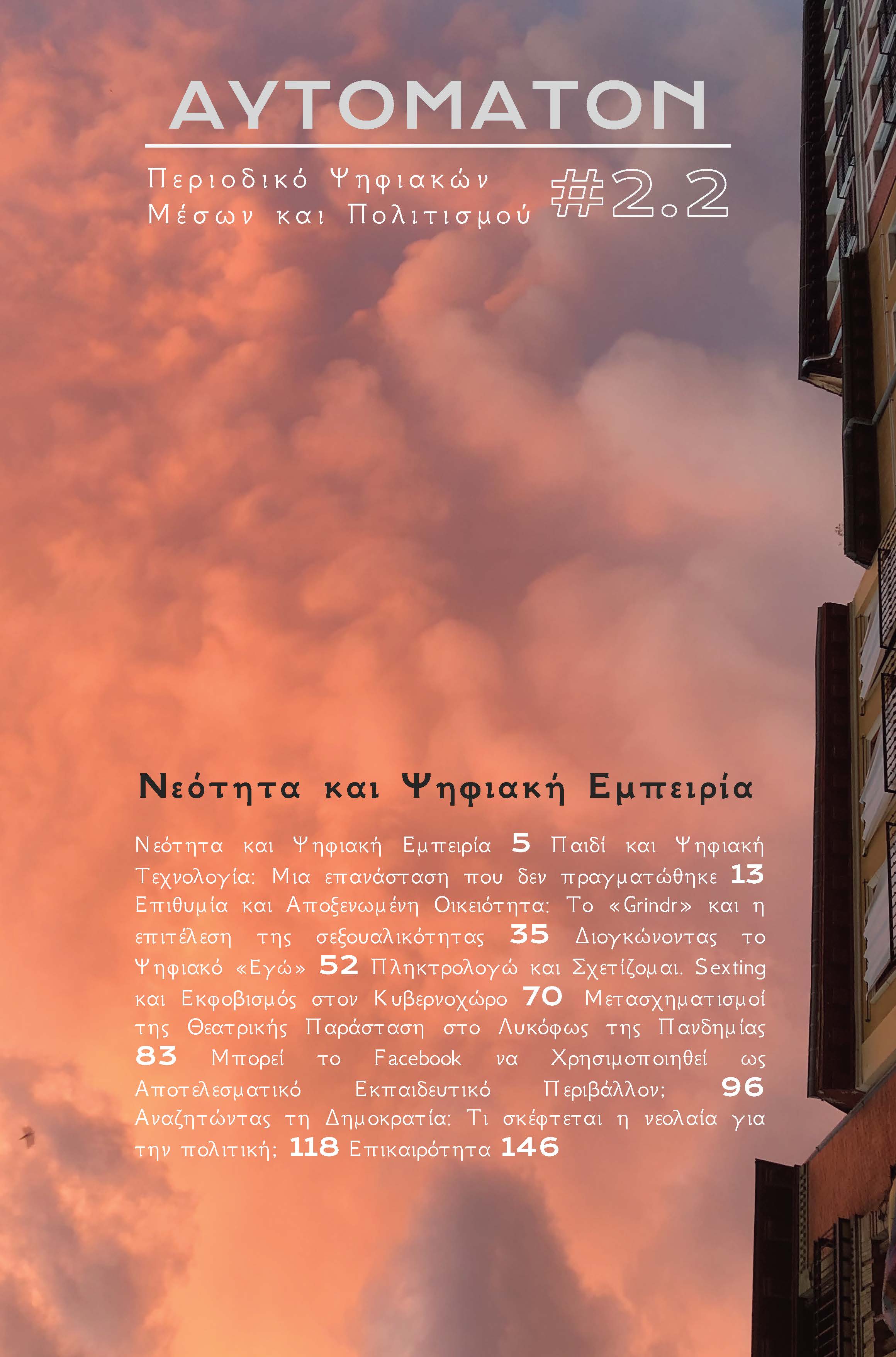Desire and Estranged Intimacy «Grindr» and the performance of sexuality

Abstract
The article attempts a theoretical approach to the «Grindr» dating application, integrating the author’s personal experience within the argument. The purpose of the article is neither to criticize and reject the app, nor to endorse and praise it. What is attempted is a reflection on the implications of the application’s enormous impact and an assessment of its cultural and political significance. The research in this article is conducted within a framework that takes into account a historical context of struggles of the LGBTQI community, and a cultural context where digital communication is taken for granted. Precisely because digital communication is a given and unavoidable, as is the urgency brought about by erotic desire for many individuals, the article proposes a review of the questions raised regarding «Grindr». The political issues brought about by digital communication in matters of identity and relationships, as well as the search for erotic partners, need attention and alertness. The application offers possibilities but also involves serious limitations linked to systemic frameworks such as patriarchy. Therefore, it is necessary to critically evaluate the «Grindr» app as a digital medium but also as an important
development in the sexual history of our time.
Article Details
- How to Cite
-
Stavrou Karayanni, S. (2023). Desire and Estranged Intimacy: «Grindr» and the performance of sexuality. Αutomaton: Journal of Digital Media and Culture, 2(2), 35–51. https://doi.org/10.12681/automaton.35472
- Section
- Articles

This work is licensed under a Creative Commons Attribution 4.0 International License.
Authors wishing to publish articles in this journal agree to the following terms:
1. The Authors retain the Copyright and grant the journal the right of first publication while at the same time the copyright of the work is protected under the Creative Commons Attribution License which allows third party licensees to use the work as they wish provided they acknowledge the work's authorship and initial publication in this journal.
2. Authors may enter into separate additional contractual arrangements for the non-exclusive distribution of the published journal version of the work (for example, posting it to an institutional repository or publishing it in a book), with acknowledgment of its initial publication in this journal.
3. Authors are allowed and encouraged to post their work online before and during the submission process (e.g. on their website) as this can lead to productive exchanges as well as earlier and more citations of published work (See The Effect of Open Access).


